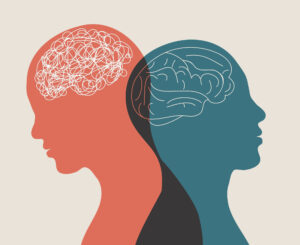Episode Summary:
A smart speaker and your Heart. “Alexa, is my heart rhythm normal”? An Electro Cardiologist interfaces a clinical problem with a smart speaker to identify cardiac arrhythmias.
Learn how innovation in biotechnology had led a cardiologist and his team to train Alexa to determine abnormal from normal heart rhythms. Still, in development, this fascinating interface highlights how leading innovators take technology and smart devices forward to enhance clinical care.
Listen as we review common cardiac arrhythmias, causes, treatments, and diagnoses current and future directions for innovation with devices and additional developments in Telehealth.
Guest:
Arun Mahankali Sridhar, M.D., M.P.H., is a cardiac electrophysiologist and a specialist in heart rhythm disorders. He is an Assistant Professor in the Division of Cardiology at the University of Washington.
Dr. Sridhar sees patients with both rapid and slow heart rhythm disorders and patients with a risk of sudden cardiac death. He has comprehensive expertise in the management of both common and complicated arrhythmias. He is an expert in catheter ablations for atrial fibrillation; atrial flutters (both typical and complex), supraventricular tachycardia, WPW, ventricular tachycardia (VT), and premature ventricular complexes (PVCs); stroke prevention in atrial fibrillation, including left atrial appendage closure. In addition, he is an experienced implanter of all types of cardiac device therapy, including cardiac pacemakers, implantable cardiac defibrillators (ICDs), and cardiac resynchronization therapy (CRT).
Dr. Sridhar’s research focuses on improving ablation techniques and patient outcomes in atrial arrhythmias. He collaborates with the UW computer science and bio-engineering department on various innovation projects to improve the care of heart rhythm patients utilizing advanced computing and novel low-cost patient-accessible technologies.
During This Episode, We Discuss:
- Cardiac (Heart) Arrhythmias: causes, detection and treatment options.
- Innovations in the diagnosis of arrhythmias.
- The benefits of a multi-disciplinary team in researching a very innovative solution to a common clinical problem.
- The role of adaptive, machine learning, signal processing, and clinical experience in moving technology forward.
- Future potential enhancements in current technology to diagnose other metabolic, cardiac, and respiratory conditions.
Quotes (Tweetables):
“At some point, patients can sit in front of a smart speaker and get a good, quick diagnostic test to see if their heart rhythm is normal without having to go to a hospital and get an EKG. Caution that this is still research and not yet ready for patient use.”
Dr. Sridhar
“Sometimes, even some dietary agents can cause an arrhythmia, one of the most common culprits is coffee, and excess alcohol can lead to arrhythmias. Alcohol-induced Atrial Fibrillation is very well described; people, especially college students who go on a binge drinking weekend, end up with a Monday morning arrhythmia, usually Atrial Fibrillation.”
Dr. Sridhar
“We converted a smart speaker into a short-range sonar device.”
Dr. Sridhar
Recommended Resources:
UW Cardiology website: Stopafib.org
Article: Using smart speakers to contactlessly monitor heart rhythms
Episode Transcript:
Coming soon!



